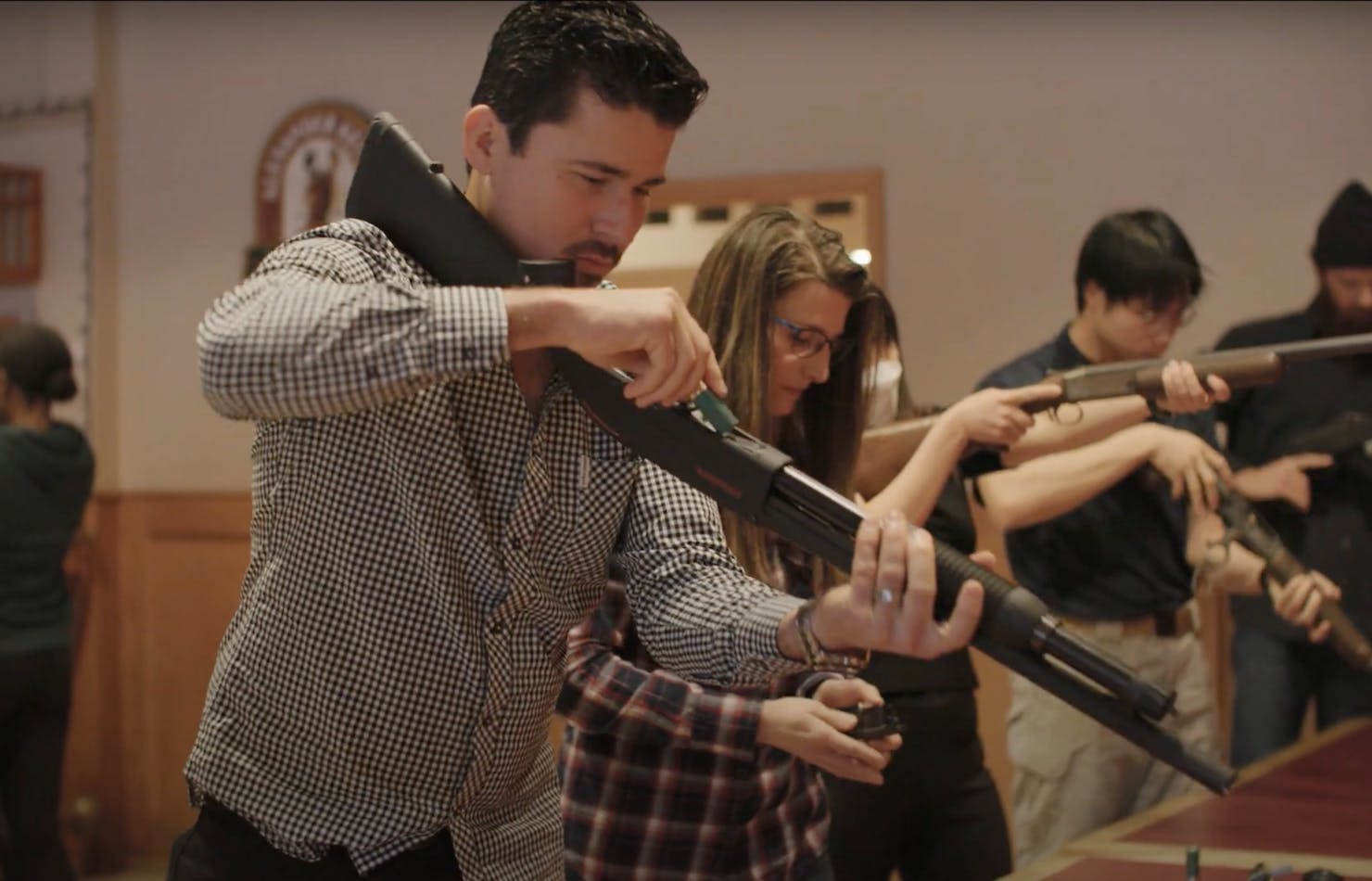
Bill C21 and the Municipal Handgun Ban
We have been receiving many questions from the public and media lately about bill C-21, the liberal government's most recent announcement relating to further firearm restrictions. Where bill C-71 was drafted with a promise to rely on “evidence based decision making”, many are pointing to bill C-21 as being “emotion based decision making”. References to banning most Airsoft and many pellet guns under the guise of “replica” firearms as well as giving the full weight of federal law to individual municipalities to enact their own city wide handgun bans has many wondering if what is being proposed is even constitutional, let alone an effective use of resources.
I set out with the intention of having an exploratory conversation with two other highly accomplished, level headed and intelligent members of the firearms business community, and what we ended up with should be considered mandatory required listening for every firearms owner.
I was joined by Daniel Fritter, and Ryan Steacy. Daniel spoke at the senate on bill C-71 and is the owner and publisher of Canada’s premier firearms publication, Calibre Magazine. Ryan is a six time national service rifle champion, director at International Barrels Inc. , and like myself is a subject matter expert for the courts and an affiant in regards to the ongoing Order in Council Firearms Prohibition legal challenge.
Spoiler, there is a strong likelihood bill C-21 is not intended to pass, but rather intended as election propaganda and a tool for division. which Daniel provides his reasoning for in the podcast. From my perspective, this was a fantastic episode with the end result providing immense value to the listeners.
Daniels lifetime of working in the public eye and in a media capacity has provided him with keen knowledge of not only politics but how to effectively communicate in a way that he, as a firearms owner, will be respected and heard. Stay tuned for a separate blog post on that.
In the Silvercore Podcast episode #42, we discuss the points of C21, and other legislation, and below is a quick reference checklist of those points as well as links to learn more.
Bill C-71 passed May 2019
Overview:
- RCMP CFP overview
- Legislative Summary
- The Bill C-71 Book
- Calibre Magazine
- NFA overview
- CSSA overview
- CCFR overview
Major Points:
- PAL background and eligibility checks beyond 5 years
- Retailers required to keep a registry / book of all transactions for future reference by the police
- Swiss Arms and CZ858 rifles removed from non-restricted category
- The definition of a non-restricted firearm changed category changed to disallowing a firearm from being “prescribed” as non-restricted
- “Destroyed” long gun registry data to be provided to Quebec, including data for those living outside of Quebec
- New grandfathering of prohibited firearms
- Changes to how firearms are classified
OIC Firearms Prohibition May 1 2020
Overview:
Major Points:
- Over 1500 firearms made prohibited
- Firearms capable of discharging projectiles over 10,000 joules made prohibited (ie. .50 bmg)
- Firearms with a bore greater than 20mm prohibited
Bill C-21
Overview:
Synopsis from OFAH , CSSA, NFA and CCFR
Major points:
- Red flag – Public Safety Canada has stated: “the Criminal Code will be amended to allow anyone to apply to a judge for an order to immediately remove firearms from 1) an individual who may pose a danger to themselves or others, or 2) a third party who could provide firearms to such an individual. The order is for a period of 30 days. Applications are now available only to peace officers, firearms officers, and Chief Firearms Officers.
- Yellow flag – Public Safety Canada has stated: “a new provision in the Firearms Act will allow a Chief Firearms Officer (CFO) to temporarily suspend an individual’s firearms licence if the CFO receives information calling into question their licence eligibility. During the suspension, an individual is prohibited from using their firearms, and cannot acquire new ones. This provides a pause while CFOs assess whether to revoke the licence. If the reasonable suspicion is eliminated prior to the end of the 30 days, the licence would be immediately reinstated.”
- Licence Revocation – Public Safety Canada has stated: It would now “Require surrender of firearms during a legal challenge of licence revocation, and measures to facilitate their safe disposal if required. Owners would no longer retain their firearms while appealing a revocation.”
- Magazine Capacity – The Bill does not propose any change to current magazine capacity limits. However, Public Safety Canada has stated: It will “Create a new Criminal Code offence for altering a cartridge magazine to hold more than its lawful capacity with a maximum penalty of five years imprisonment on indictment or punishable on summary conviction.”
- No clarity on the compensation of prohibited firearms – The government reiterated that it “intends to offer owners compensation for surrendering firearms prohibited on May 1, 2020. Details of a buyback program will be announced later.”
- Replica firearms (ie. Airsoft / pellet guns) – Public Safety Canada has stated: It will “Close the gap in the Criminal Code regarding ‘replica’ firearms by ensuring the prohibition on importation, exportation and sale applies to all non-regulated airguns that look like modern firearms. Un-regulated airguns that look like modern firearms and fire a projectile below 366 feet per second (fps) are already considered replicas, and are prohibited. This amendment will close a gap to ensure that air guns firing a projectile between 366 and 500 fps are also considered replicas if they look like modern firearms. Current owners will be allowed to keep those they already own, but they cannot transfer them to another person.”
- Ammunition import – Public Safety Canada has stated: It will “Amend the Firearms Act to require presentation of a firearms licence to import ammunition to ensure that individuals without a licence cannot obtain ammunition from abroad, e.g. for an illegal firearm.”
- Straw purchasing – Public Safety Canada has stated: It will “Amend the Firearms Act to authorize the disclosure of information about firearms licence holders to Canadian law enforcement agencies when there are reasonable grounds to suspect the licence is being used for straw purchasing and weapons trafficking. A reporting requirement will be added to the Annual Report of the Commissioner of Firearms to ensure transparency.” It will also “Impose stronger Criminal Code penalties for gun smuggling and trafficking and related offences to increase maximum penalties from 10 years to 14 years imprisonment”.
- Marketing and Promotion of Firearms – Public Safety Canada has stated: It will “Create a new Firearms Act offence for a business that promotes or depicts violence in firearms advertising with a maximum penalty of two years imprisonment, in the case of a first offence, and five years for each subsequent offence. The bill says glorification of violence against a person, so contrary to what some reports have suggested it would not include a depiction of hunting as ‘violence’.”
- Municipal firearms bans – Public Safety Canada has stated that Bill C-21 would make “Compliance with handgun storage and transport restrictions a condition of federal firearms licence in municipalities that pass bylaws to:
- prohibit storage at home (i.e. owners must store handguns at a licensed business); or,
- prohibit storage anywhere in municipality, and transport to or from certain places in it.
Municipalities would notify the Minister of bylaws creating these restrictions and the Registrar of Firearms would inform affected licence holders, with conditions of licence to apply after 180 days to provide time for compliance. The Commissioner of Firearms will maintain a public list where restrictions apply. Breach of a condition of federal licence carries a penalty of up to two years imprisonment and possible revocation of licence or registration certificate.”
They also state that “Additional eligible grounds for storage restriction bylaws may be prescribed by regulation to adapt the regime, and in response to local needs. The Governor in Council may also prescribe exceptions”.


